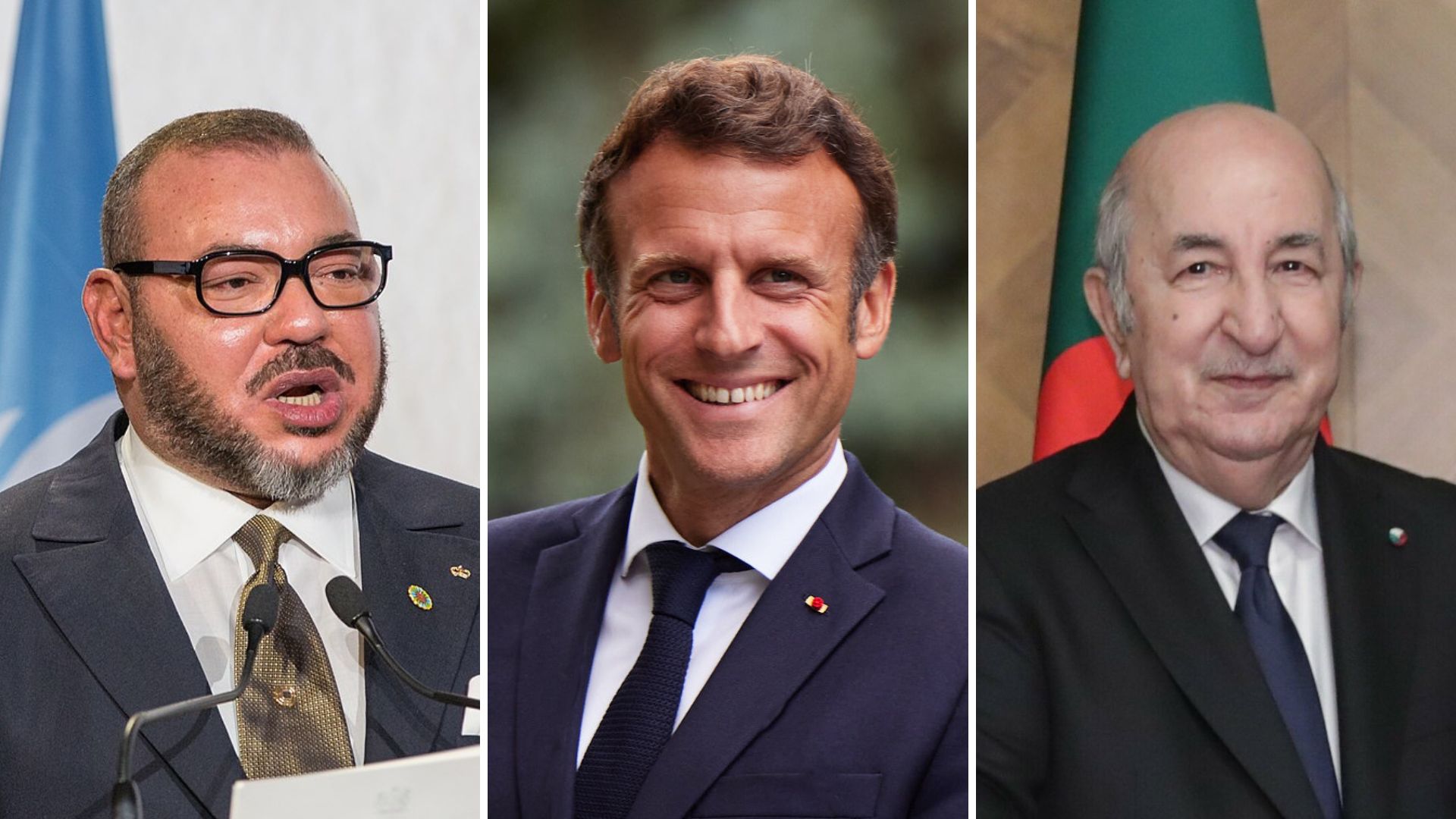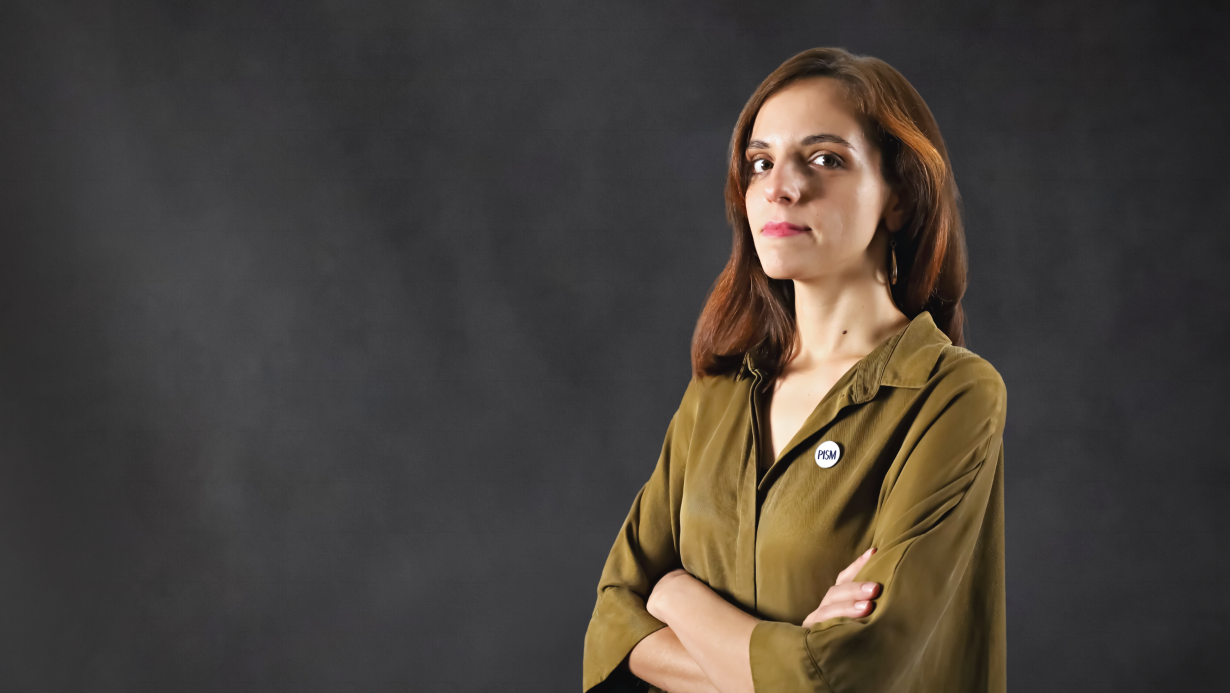France Walks Fine Line to Improve Relations with Both Algeria and Morocco
The military upheavals between 2020 and 2023 that resulted in a reduction of France’s military presence in the Sahel highlighted the importance of relations with Morocco and Algeria to realise French interests in the region. Rebuilding this influence is hampered by the rivalry between the two countries over the status of Western Sahara. Necessary for improving relations will be the political will of Morocco and Algeria to cooperate with France in the area of migration and, on the part of France, greater involvement in the development of the two countries’ energy sector.

Between 2020 and 2023 there were six coups d'état in Sahel countries, primarily related to opposition to French policies in the region. This has translated into attempts to improve France’s relations with Algeria and Morocco. These countries remain its leading partners in Africa, but their mutual rivalry forces France to adopt a balancing policy. Cooperation is also hampered by failed attempts to settle colonialism and disputes over migration. France aims to persuade Algeria and Morocco to pursue policies that coincide with France’s, especially in security, migration, and energy. This is also part of a broader effort to diversify energy supply sources since the beginning of Russia’s full-scale invasion of Ukraine.
Western Sahara and the Sahel
The conflict over the status of Western Sahara, a former Spanish colony, dates back to 1975 when Morocco, following Spain’s withdrawal, recognised it as part of its territory and began to annex it. Algeria supported the Polisario Front national liberation movement at the time, which fought armed battles with Morocco. They were halted in 1991 through a UN-agreed peace plan. However, a referendum to end it was never held. As a result, disputes between Morocco and Algeria escalated. In 1994, Morocco accused Algeria of involvement in a terrorist attack in Marrakech and imposed a visa requirement on Algerians. In response, Algeria closed its border with Morocco, which it has not opened until today.
The rivalry over the status of Western Sahara has intensified in recent years, translating into attempts to force France to take a clear position. This was due to the Moroccan authorities’ conviction that recognition of Moroccan sovereignty over the disputed territories by the U.S. in 2020 would bring international consensus on the issue closer. This was evidenced, for example, by the consulates opened by 19 African Union countries in the Moroccan-controlled territory of Western Sahara, signalling support for Moroccan claims, despite most member states having previously supported the independence movement and Algeria. This translated into increased pressure on France to accommodate Morocco’s position. Therefore, one of the elements that ended the French-Moroccan dispute triggered by France’s limitation on the number of visas issued to Moroccans in 2022 was President Emmanuel Macron’s recognition of the Moroccan plan to create autonomy in Western Sahara as a foundation for further talks. However, this is different from the approach of the EU, which supports the UN plan. Also, the EU Court of Justice has five times rejected the possibility of extending the provisions of EU-Morocco agricultural and fishing agreements to Western Sahara.
On the other hand, Algeria fears that granting Morocco sovereignty over Western Sahara will ultimately undermine its influence over security in the Sahel. To date, Algeria has played a vital role during the mediation of conflicts in Mali (in 1991 and 2015) and initiated the creation of the Joint Operations Committee (CEMOC), a regional counterterrorism organisation, in 2010. In recent years, however, Algeria’s position has weakened in favour of France and Morocco. This has been influenced by France’s armed interventions in the region and its establishment of the Sahel G5 force in 2014, which Algeria interpreted as an attempt to undermine CEMOC. For this reason, it refused to support French-backed military missions and closed its airspace to French forces. This allowed it to retain credibility in the Sahel when, due to growing opposition from the local population, French troops had to withdraw from Mali (2022), Burkina Faso (2023), and Niger (2023), as evidenced by the acceptance of its offer to mediate between Niger’s civilian authorities and the military junta. Moreover, in 2020, amid a deterioration of the security situation in the Sahel, Algeria introduced a constitutional amendment allowing participation in foreign military missions.
Challenges to Cooperation in Migration and Energy Policy
The 2021 visa crisis highlighted the difficulties in strengthening relations between the three countries. In September, France decided to halve the number of visas issued to Morocco and Algeria and reduce them by a third for Tunisia, decisions that drew strong opposition from the Maghreb countries. The French government justified them on the basis of a lack of cooperation from Maghreb countries on readmission and that it wanted to pressure its partners to improve controls on the movement of people. In 2022, Algerians were France’s largest immigrant population (12.5%), closely followed by Moroccans (11.9%). For both countries, maintaining a large diaspora in France is beneficial in terms of their financial contribution to families in the country. Remittances from France in 2022 accounted for more than a third of the €10 billion sent to the country by Moroccans living abroad. In both France and the EU, the issue of migration has gained importance in the context of security policy and the effectiveness of measures to expel people who entered the country through irregular channels. Both countries reject a purely security-based approach to migration and are using their position as a transit state to the EU as a means of political leverage. France’s withdrawal in December 2022 from previously introduced restrictions has not resolved the migration disputes. They will resurface in the context of the French parliament’s procedure on the new immigration law submitted by the government, which is expected to, among other things, increase control over immigration, facilitate the deportation of foreigners with irregular status, and reform the asylum system.
France’s deepening energy cooperation with Morocco and Algeria is fostered by efforts to become less dependent on Russian raw materials. As a result, the first half of 2023 saw an increase in trade between Algeria and France, the main reason for which was the doubling of Algerian gas supplies to France (Algeria thus covered half of the French gas purchases). Such momentum may continue thanks to the signing of several agreements between French oil company Total Energies and Algeria’s Sonatrach in July this year, covering investments in oil and gas production and cooperation in renewable energy. The challenge for Algerian authorities and their European partners is to increase production. High consumption for domestic needs may limit the potential for exports to Europe. Algerian Energy Minister Mohamed Arkab has called on European companies to increase investment in the sector. Morocco, in turn, is the world’s largest recipient of funding from the French Development Agency, whose goals include support of the energy and climate transitions. This fits in with the EU’s green energy partnership policy with Morocco.
Conclusions and Perspectives
Improving relations between France, Morocco, and Algeria is hampered by the latter two state’s uncompromising approach to Western Sahara, an issue on which France will try to maintain a balanced position. In addition, the achievement of a breakthrough between the three countries is hampered by the instrumentalisation by each of them of mutual relations to achieve goals at the regional level. Algeria, for example, is attempting to take advantage of France’s weakening in the Sahel to resume its leading security role in the region, as indicated by, among other things, breaking the taboo on military engagement abroad. Despite Moroccan efforts, France is reluctant to adopt a pro-Morocco stance on the Western Sahara issue so as not to jeopardise Franco-Algerian relations. Indeed, maintaining correct relations with Algeria is essential for its energy policy interests and combating terrorism and extremism in the Sahel.
The EU can play an important role in consolidating relations and maintaining lasting influence in the countries of the region by using existing mechanisms for energy and economic cooperation, such as the Green Deal and Global Gateway. This is in line with France’s policy directions. Differences in the EU’s and France’s approaches to the Western Sahara issue will remain challenging. Synergies between the policies of the Member States, including France, and EU migration strategies will also be substantial. Increasing the capacity of the national authorities in Algeria and Morocco to cooperate with the EU and creating tools to encourage compliance with readmission obligations will be vital to improving the management of migration flows from the Union’s southern neighbour.




